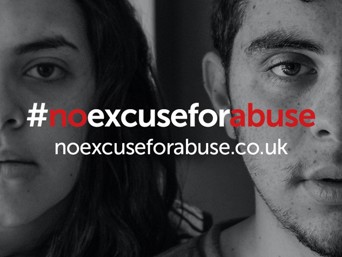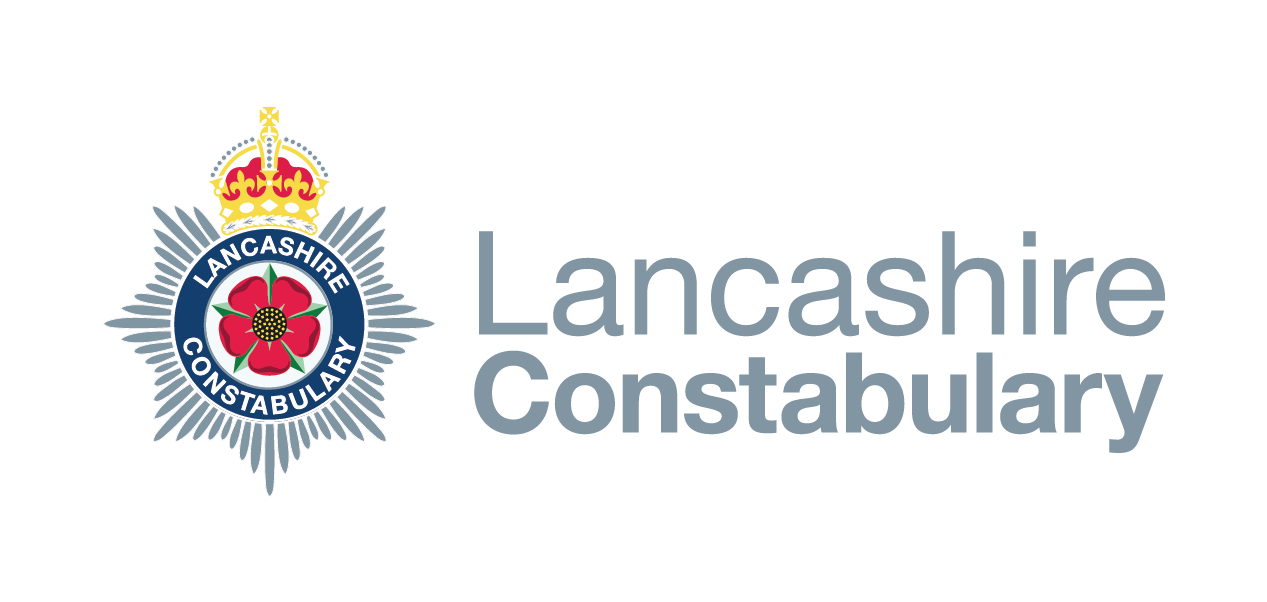Domestic Abuse
 It’s important to know that there is no 'them and us' when we're thinking about victims and survivors of domestic abuse - they are our friends, our family, our neighbours and our colleagues.
It’s important to know that there is no 'them and us' when we're thinking about victims and survivors of domestic abuse - they are our friends, our family, our neighbours and our colleagues.
Domestic abuse isn’t just physical – it can be emotional, physical, sexual, financial or controlling behaviour. Whatever it’s form, there’s #noexcuseforabuse in Lancashire.
For anyone who feels they are at risk of abuse, it is important to remember that there is help and support available to you in your own time frame.
If you recognise any of these feelings or behaviours then you, or someone you know, may be in an abusive relationship.
Do you ever feel:
- Belittled or put down?
- Blamed for the abuse or arguments?
- Isolated from your family and friends?
- Stopped from going to college or work?
- Accused of things you haven’t done?
- Restricted in what you can wear, who you can see, where you can go or what you can think?
Have you:
- Been threatened?
- Had things that belong to you destroyed?
- Had your personal space invaded?
- Had your e-mails, texts or letters checked?
Have you ever been physically hurt by being:
- Slapped, hit or punched?
- Pushed or shoved?
- Bitten or kicked?
- Burnt?
Sexual abuse can happen to anyone, whether they’re male or female. Have you ever:
- Been touched in a way you don’t want to be touched?
- Received unwanted sexual demands?
- Been hurt during sex?
- Pressured to have unsafe sex – for example, not using a condom?
- Pressured to have sex - If your partner, or former partner, has sex with you when you don’t want to, this is rape
Report it
If you want to report a crime, but you are not in immediate danger, you can call the police on 101 or report online here: lancashire.police.uk/reportcrime
If you need the police in an emergency, please do not be afraid to dial 999 - they will help you and protect you from danger.
If you can’t speak in an emergency Call 999 from a mobile. When you call 999, the operator (the person on the phone) will ask which emergency service is required. Listen to the questions from the 999 operator. If you cannot say ‘police’ or ‘ambulance’, respond by coughing or tapping the handset if you can. If prompted, press 55 on your phone. This lets the 999 call operator know it’s an emergency and that you aren’t safe to speak.
Call 999 from a landline. If only background noise can be heard and operators cannot decide whether an emergency service is needed, then you will be connected to a police call handler.
If you replace the handset, the landline may remain connected for 45 seconds in case you pick up again.
When 999 calls are made from landlines, information about your location should be automatically available to the call handlers to help provide a response.
If you are deaf or can’t verbally communicate You can register with the emergencySMS service. Text REGISTER to 999. You will get a text which tells you what to do next. Do this when it is safe so you can text when you are in danger.
I don’t know where I am and need the police as it’s an emergency If you need the police in an emergency and you’re unsure of where you are, you can use the what3words app or website to generate a random three-word code to let our call handlers know exactly where you are. This code gives police call handlers a simple way to describe precisely where you are and allow them to direct help straight to the scene. Find out more about what3words and how it could help you in an emergency by visiting www.what3words.com.
Supporting a friend if they’re being abused If you’re worried a friend is being abused, let them know you’ve noticed something is wrong.
Neighbours and community members can be a life-line for those living with domestic abuse. Look out for your neighbours, if someone reaches out to you there is advice on this page about how to respond. They might not be ready to talk, but try to find quiet times when they can talk if they choose to.
If someone confides in you that they’re suffering domestic abuse:
- listen, and take care not to blame them
- acknowledge it takes strength to talk to someone about experiencing abuse
- give them time to talk, but don’t push them to talk if they don’t want to
- acknowledge they’re in a frightening and difficult situation
- tell them nobody deserves to be threatened or beaten, despite what the abuser has said
- support them as a friend – encourage them to express their feelings, and allow them to make their own decisions
- don’t tell them to leave the relationship if they’re not ready – that’s their decision
- ask if they have experienced physical harm – if so, offer to go with them to a hospital or GP
- help them report the assault to the police if they choose to
- be ready to provide information on organisations that offer help for people experiencing domestic abuse
Help and support
If you are worried that a friend, neighbour or loved one is a victim of domestic abuse then you can visit www.noexcuseforabuse.co.uk for details of the support services in Lancashire.
Clare's law - domestic violence disclosure
Clare’s Law is the Domestic Violence Disclosure Scheme. It's named after Clare Wood, who was murdered in 2009 by her ex-boyfriend who had a history of violence against women. The scheme allows you to ask us about the information we hold on a person in relation to domestic abuse offences and convictions. Disclosures provide you with domestic abuse information we hold on an individual. If our checks show that the individual has a record of violent behaviour or something that may put you at risk of harm, we will consider sharing this with you.
Domestic abuse or violence disclosure guidance
Disclosures will only be given to the person best placed to protect the potential victim and who needs to know the details to keep them safe. For example, if you are a third party applicant who is worried about the safety of someone else, you may not be the best person to receive the information.
Our officers always aim to keep the confidentiality of the applicant. We plan all disclosures to minimise the risk of harm to those concerned. If you receive a disclosure, it should also be treated as confidential.
If information is disclosed to you, it must be understood that it's only being given to you so that you can protect yourself, or someone you know. For safety purposes, we ask you not to share the information unless an officer has agreed for you to do so.
You can use disclosures to;
- keep yourself safe
- keep children and those involved safe
- ask what support is available
- ask for advice on how to keep yourself safe
Apply for domestic disclosure information Domestic abuse or violence disclosure applications can be made by:
- calling 101
- visiting your local police station
- by speaking to one of our officers on the street
You can apply for information about your own partner or as a third party if you are worried about the safety of someone you know.
If you are a third-party applicant, you must have some sort of relationship with the potential victim, such as sibling, parent, friend, work colleague or neighbour. You must be able to provide details of the person who is potentially at risk of harm and the person who is thought to cause the risk.
Victim Support
Victim Support provide support to victims of domestic violence and abuse to regain control of their lives and strengthen their safety, independence and autonomy.
Contact details are below:
Phone: 0300 1409956, Contact form: Complete the online referral form, Website: Help after experiencing domestic abuse – Victim Support
You can also call the National Domestic Abuse Helpline on 0808 2000 247.
Domestic disclosure application process
Once you've applied for a disclosure, we'll carry out checks as soon as we can. An officer will be assigned to your disclosure application and a visit will be arranged. The visit will be a face-to-face interview to confirm who you are and to gather further details.
We aim to complete all disclosure requests within 35 days, but timescales vary between applications. If we believe someone is in immediate danger of domestic abuse or violence, appropriate action will be taken.
We may also meet with other safeguarding agencies such as the Probation Service, Prison Service or local council social services. The group would discuss the information you provided to see whether they have any other related information. This multi-agency meeting will decide whether a domestic violence disclosure is lawful, necessary and proportionate.

